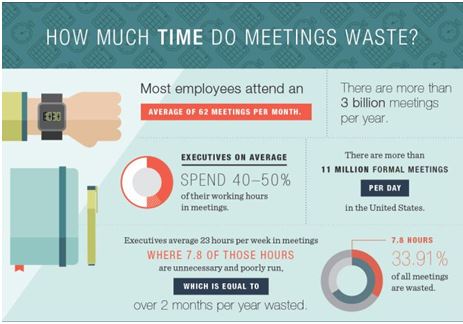
Effective Business Meetings Equal 37 Billion Dollars per Year

Change Management Process for New Managers
Employee Retention by Building a Culture of Sincere Appreciation

- change management
- change management models
- change management plan
- change management process
- change management tools
- change organization
- company culture
- corporate culture
- culture of appreciation
- Employee Engagement
- Empowerment
- leadership
- leading change management
- manage change effectively
- manage change workplace
- manage organizational change
- Motivation
- retaining employees
- sincere appreciate

 During college, I worked in a used bookstore close to campus. The pay was low. The hours were often inconvenient. And yet, we were dedicated to our jobs. The only time a job in the store came open was when a former employee graduated and left town. (If they stuck around after graduation, they’d keep working at the bookstore.) I was lucky and stumbled into a job there my first week of freshman year, and I stayed. I worked overtime and covered shifts without complaint, I hung out at the store in my free time, I jumped at the chance to work weekends or book fairs.
During college, I worked in a used bookstore close to campus. The pay was low. The hours were often inconvenient. And yet, we were dedicated to our jobs. The only time a job in the store came open was when a former employee graduated and left town. (If they stuck around after graduation, they’d keep working at the bookstore.) I was lucky and stumbled into a job there my first week of freshman year, and I stayed. I worked overtime and covered shifts without complaint, I hung out at the store in my free time, I jumped at the chance to work weekends or book fairs.
Why were we such engaged, enthusiastic employees even though our pay was low and our benefits were non-existent? It all came down to Brad, the owner. Even though the bookstore didn’t pay us much, he treated us like family and constantly showed us how much he appreciated our efforts. If we came in early on a Saturday, he brought croissants and coffee. If we worked a book fair, he took us out to dinner. If he knew there was a subject we were especially interested in, he’d sometimes just give us a book to say thank you for our hard work. We felt like appreciated members of a team, and so we worked hard and stayed in our jobs as long as humanly possible.In a larger company, the CEO doesn’t have the opportunity to show appreciation to every single employee on a regular basis. But you can still create a culture of sincere appreciation that inspires loyalty in your best employees.
In a larger company, the CEO doesn’t have the opportunity to show appreciation to every single employee on a regular basis. But you can still create a culture of sincere appreciation that inspires loyalty in your best employees.
Why Gratitude and Appreciation Matter
For Millennials, feeling appreciated is more important to employee retention than salary or benefits. Even among other age groups, the most common reason for leaving a job is feeling underappreciated. People want to feel like they’re needed and that their work is valued. Otherwise, a job becomes a chore, not a source of pride and fulfillment, and requests for employees to go above and beyond are likely to be met with resentment.
The relationship each employee has with the larger company determines whether they stay long-term, or start looking for new jobs as soon as they’ve checked off a desired accomplishment for their resume. Relationship experts have found that a key element in successful relationships is gratitude. People who experience genuine gratitude from a partner become more committed to a relationship, while people who feel taken for granted look for an outlet. The relationship between employer and employee is similar to a relationship between spouses. When you’re working together for a common goal and showing your employees genuine appreciation, it creates a cycle of encouragement that leads to greater trust and respect.
The Culture of Appreciation in a Mid to Large-Sized company
To improve employee engagement and retention, you have to actively plan for a culture of genuine appreciation. You need to take concrete actions geared towards creating and supporting this culture. Appreciation culture doesn’t just happen. It has to be encouraged by:
Hiring managers who are nurturers. Some managers see themselves enforcers, who make sure employees meet goals and follow rules. Other managers work more as nurturers, helping their employees grow their talents, gain confidence, and tackle new and interesting challenges. Nurturing managers are better at showing appreciation than enforcers, because they want to help employees succeed rather than just ensure they perform certain tasks.
Giving your managers an ‘Appreciation Budget.’ Words of appreciation are always helpful, but give your managers the freedom to engage in gestures of appreciation too. For instance, with a small budget they could organize a bagel breakfast after the team has completed a difficult project, give employees small gifts or cards to mark milestones, or even give people gift cards occasionally to say, ‘thank you for your hard work.’
Listening to Employees. When you take the concerns and ideas of your employees seriously, they feel valued and appreciated. Suggestion boxes aren’t enough – they’re too easy to ignore. Encourage a culture where managers listen to employees, take their thoughts seriously, and work with them to resolve problems and implement solutions.
Catching people succeeding, and complimenting them. A standard of parenting books is the advice to ‘catch your children being good and praise them.’ People of all ages thrive when they receive praise for doing well, and they tend to wither away when all they hear is criticism. Have your managers ‘catch employees’ in the act. Give compliments and feedback immediately after a difficult task or a deadline, so that they know that their efforts are important and valued.
Giving public recognition for team efforts. Have you ever been into a church at Easter or Christmas? Often the worship leader will close the service with a big thank you to the various committees for their contributions to the celebration. While the pastor can’t thank every individual choir member, decorator, usher, church cleaner, musician, or children’s helper by name, he calls out each group and thanks them specifically and publicly for their efforts.
Giving public recognition for team efforts. Have you ever been into a church at Easter or Christmas? Often the worship leader will close the service with a big thank you to the various committees for their contributions to the celebration. While the pastor can’t thank every individual choir member, decorator, usher, church cleaner, musician, or children’s helper by name, he calls out each group and thanks them specifically and publicly for their efforts.
In a sense, a large company is like a large church. At the close of a big project, you can’t possibly thank each person individually for their accomplishments, but you can give concrete, specific, and public appreciation to each team involved, praising them for how their small part contributed to the success of the whole project. This kind of recognition is essential for making employees feel sincerely appreciated, and not just like cogs in the corporate machine.
Even now, 20 years after I started working for Brad at the used bookstore, I’d take a pay cut and go back to that bookstore in a heartbeat if I ever returned to my old college town. It was such a fulfilling job because the satisfaction of being valued and appreciated made up for the low pay. If you want to retain excellent, experienced employees, strive to create the same sort of culture, where employees feel like a connected and valued part of a family, not merely workers. Applied Vision Works can provide you with the analysis and training you need to build a culture of genuine appreciation that helps your company thrive.



